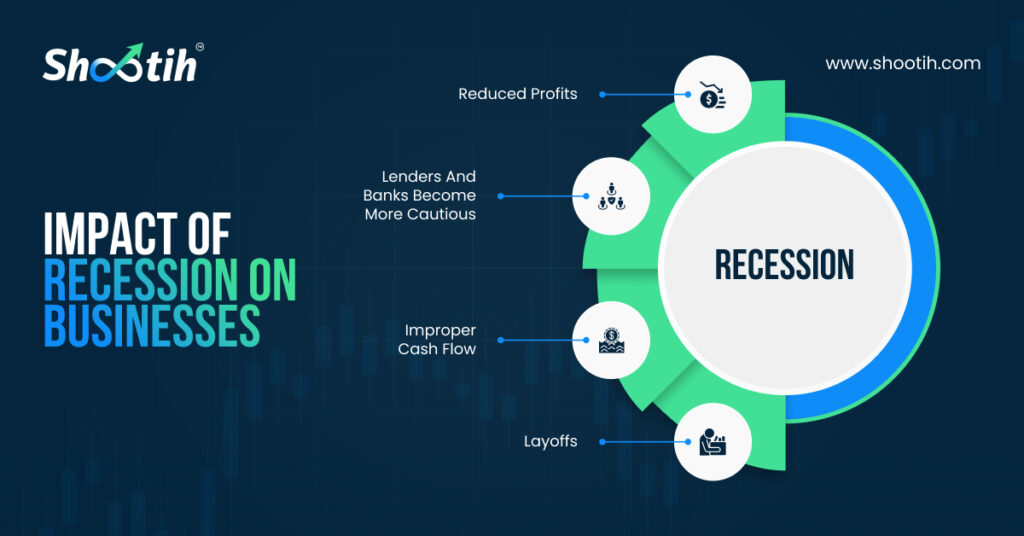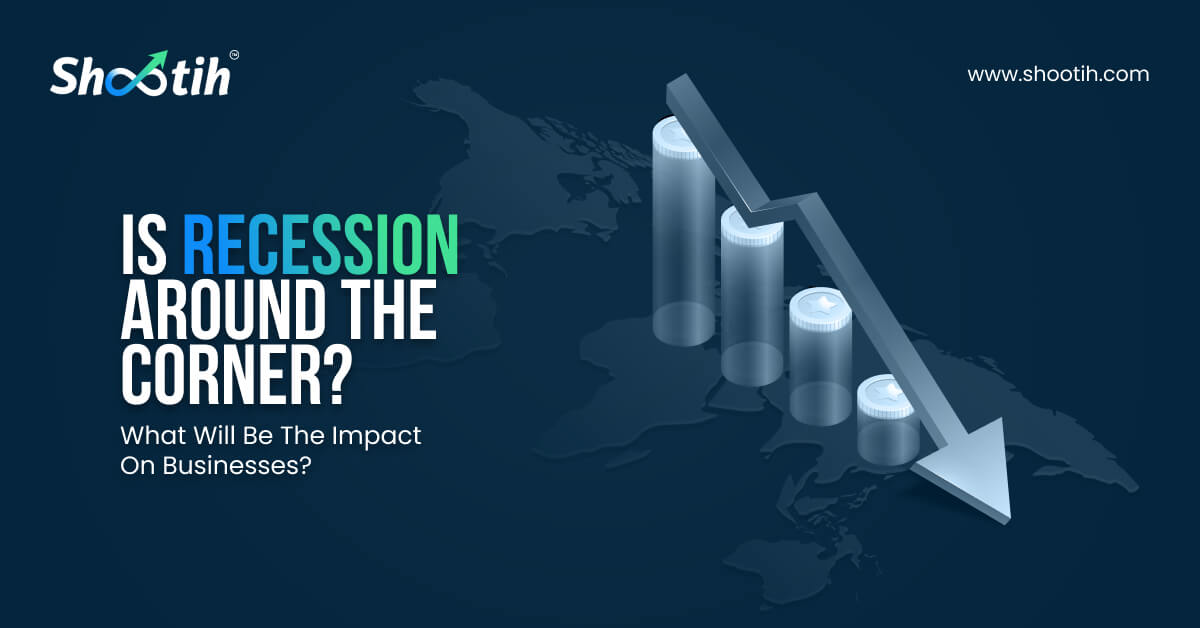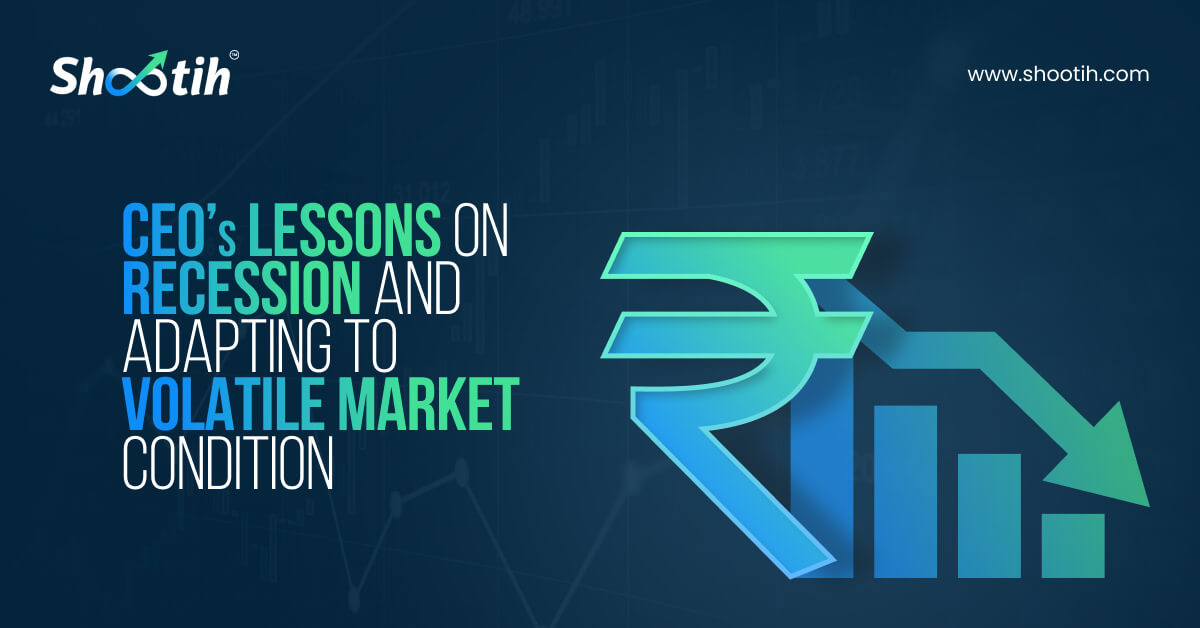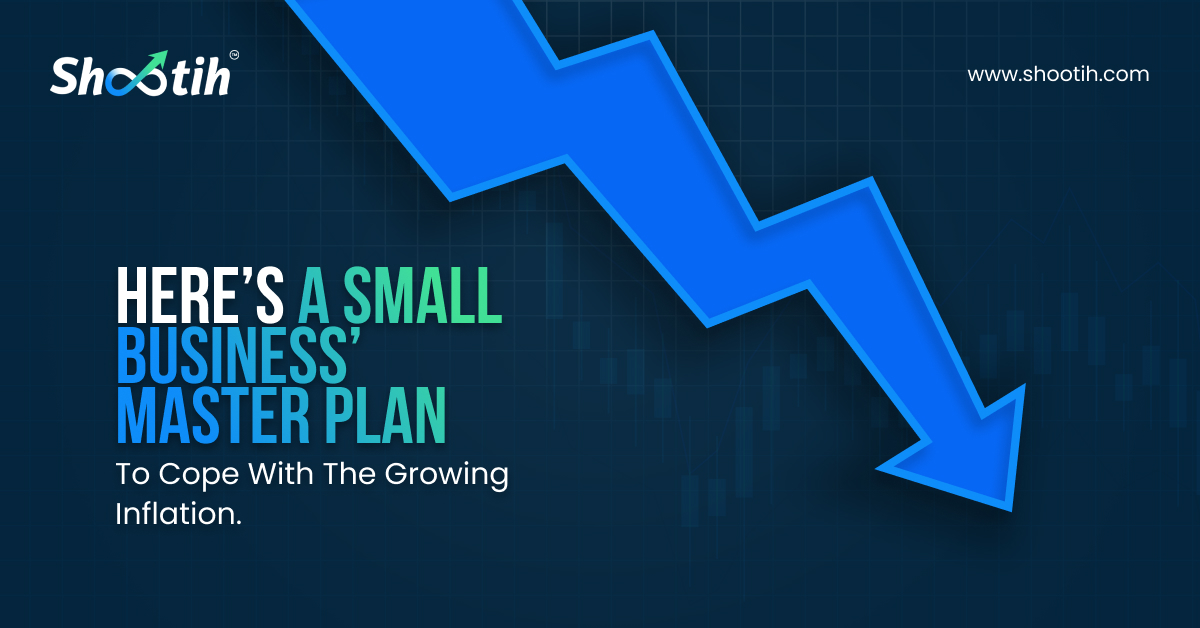The past few months have been quite eventful. Recently, the International Monetary Fund (IMF) announced that the world is possibly on the verge of a recession.
The world barely recovered from a pandemic and war broke out between Ukraine and Russia, two major suppliers of energy and agricultural produce to the majority of European countries and the rest of the world.
These events have sent shockwaves across the world economy, so much that the world’s largest financial institutions have dropped a hint about the possibility of a global recession. IMF’s chief economist Pierre-Olivier Gourinchas stated, “The world may soon be teetering on the edge of a global recession, only two years after the last one.”
Even though talks are going around about recession, how do economists identify it is around the corner?
How Is Recession Measured?
Well, recession leads to a decline in economic activities, reduced demand, widespread unemployment, limited buying power, reduced spending, and reduced output.
Many countries consider GDP as the defining factor of recession or economic growth.
A fall in GDP for a sustainable time frame like two to four consecutive quarters is considered a recession. To state simply, a recession is when supply surpasses demand. It is a scenario where commodities are abundant, but people do not buy them because of the reduced purchasing power.
The IMF stated in the World Economic Outlook that global real GDP growth will slow to 3.2 % in 2022 from a forecast of 3.6%, making many people speculate about a recession in the coming year.
Difference Between Recession And Economic Slowdown:
However, it is important to not confuse a recession with an economic slowdown. A recession is when the GDP of a country becomes negative. On the other hand, an economic slowdown is when the GDP growth rate reduces. For example, if India’s GDP growth was 7% in 2019 and reduced to 5.9% in the year 2021, then this is an economic slowdown. But if India fails to register any growth in a particular year and the GDP becomes negative, then the scenario is called a recession.
So even though the IMF has stated a declining growth rate of global real GDP, which is probably a result of economic slowdown worldwide, does not necessarily mean we will see a recession in the coming months.
A Quick Recap Of The 2008 Recession:
In 2008, a great recession hit the world, originating from the USA and collapsing the global economy. The main reason for the 2008 recession was; mortgages & house loans.
National and international investors started showing interest in mortgage-backed securities to invest their money and get higher returns. Initially, taking a mortgage in the USA used to be very difficult. Only the applicants with a very solid credit score could apply for a mortgage. But as more and more investors became interested in mortgage-backed securities, lenders lowered their standards and allowed mortgages to people with relatively poor credit scores and lower incomes.
Gradually, people started defaulting on their mortgages and more homes became available in the market. The demand for homes fell massively, collapsing house prices and the stocks of all those investors that invested in mortgage-backed securities.
The 2008 recession crumbled many financial institutions and banks in the U.S.A, a notable one amongst them was the collapse of Lehman Brothers, one of the biggest investment banks in the world at the time. The U.S.A. market and other affected countries took almost a decade to recover from their losses.
How This Recession Will Be Different From The Rest
Even though the economy across the globe has slowed down, financial experts still believe that we haven’t reached the stage of a recession yet. But even if we go down that road, it wouldn’t be the same as the previous recessions.
While the 2008 recession occurred due to the collapse of the housing infrastructure market in the U.S., the present scenario is the result of the COVID-19 pandemic followed by the Ukraine-Russia war.
Here’s how the present scenario is different from the past recessions:
- Fundamental economic activities like housing, the automotive sector, etc., haven’t seen a drop in demand in the longest time. The demand for houses, automobiles and other assets is at an all-time high and these sectors are generating fair revenue, which wasn’t the case during the 2008 great recession.
- Another important point to consider is that profit margins are in double digits, while during the 2008 recession, profit margins of the corporations were in single digits.
- The labor force participation rate is as low as it has been in the last 40 years. In the US alone 11 million jobs are vacant and companies are having a hard time filling the positions.
Source: U.S. Department Of Labor.
- Last recessions saw jobless recovery. Even when GDP started growing, companies continued to lay off employees. Currently, the scenario is just the opposite. According to a report by the U.S. Bureau of Economic Analysts, companies are still hiring despite of economic slowdown.
According to the IMF, “the risk of recession is particularly prominent in 2023 when in several economies growth is expected to bottom out, household savings accumulated during the pandemic will have declined, and even small shocks could cause economies to stall.”
So if the recession does occur, let’s have a look at how it can impact businesses in general:
Impact Of Recession On Businesses

A recession is a nightmare for any business. The whole idea of having a business is to identify a problem, create a solution, sell it and earn profits. During a recession, people stop buying the solutions which results in decreased demand and decreased profits.
Here’s how a recession can affect businesses:
1. Reduced Profits:
Even though a recession barely lasts a few quarters in a financial year, reduced profit margins are one of the most evident effects of the recession. During recessions, unemployment prevails, economic activity slows down, and purchasing power of people reduces. With these changes, businesses struggle to generate sales and focus on cutting costs. During recessions, businesses steer clear of investing in new products and try to cut their overhead costs, as much as possible.
2. Lenders And Banks Become More Cautious:
During a recession, banks and lenders become more cautious about lending money and giving loans, causing a credit crunch in the market. This makes it harder for businesses to access their usual line of credit and stay afloat during difficult times. The interest rates skyrocket and the rules and regulations set by the lender become more strict.
3. Improper Cash Flow:
A recession hits both businesses and customers alike. Customers find it difficult to make regular payments and businesses find it difficult to pay ahead to their vendors, suppliers, employees, etc. The whole phenomenon leads to a massive disruption in the usual cash flow of businesses.
Must Read: Cash Flow Management: The Art Of Managing Your Business Wealth
4. Layoffs:
Employee layoff is certainly a factor that causes maximum panic amongst people during a recession. Most businesses rely on employee layoffs to cut costs and stay afloat. However, employee layoff is as bad for a business as it is for the workforce. With the restricted human resources, many business operations get affected. Productivity gets hampered and a business’ reputation also takes a toll.
This is how a recession can affect businesses in general.
Our Two Cents
No recession lasts for more than a year or two, therefore, by proper planning and understanding of the market and economy, any business can overcome the temporary setback easily. However, you will require an amalgamation of modern technology & proper planning to manage your business wealth in a proactive manner.
How does a blend of Artificial Intelligence and wealth management techniques sound for that?
With Shootih, an online wealth management platform, you can easily stay prepared for future difficulties like economic slowdown, recession, inflation, etc. Shootih is helping businesses to manage their wealth easily, cash flow & investments with its AI-powered forecasting and functionalities. With Shootih, businesses can get a consolidated, analytical view of business transactions, AI-based recommendations to invest idle cash, and enables corporates to buy and sell mutual funds, all in one place.
For a better future, you need to start preparing today, and Shootih, a wealth management tool for businesses, can help you stay prepared.













